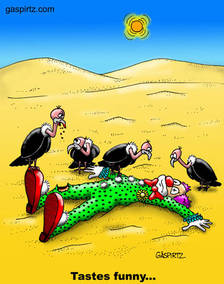One of the best ways of staying on track with your fitness regime is to set goals. These goals can reflect not only your desired end result, but also a pathway to get there as painlessly as possible.
More often than not, the decision to go on a diet or start exercising is a reaction to something happening in your life. Examples of this might include planning for a trip, or you or a loved one being diagnosed with an illness that is related to obesity or hypertension. It is very important that you don’t jump in with both feet and without a plan. Setting priorities or goals will help you to focus on what’s important when embarking on a lifestyle change.
SMART Goals
S – Specific. Your goal should be as specific as possible in order to be able to monitor progress. This portion of the smart goal should map out what it is that you’re trying to accomplish physically.
M – Measurable. If your goal doesn’t have some kind of number in it, consider adding one or two. Without a quantitative value, your goal may sound something like this: “I want to lose weight someday.” Add some numbers to make your goal smarter and more measurable. For example: “I want to lose 10lbs over 4 weeks.”
A – Attainable. Is this goal possible? Although the idea of losing 10lbs in one week is nice, it is neither safe nor likely. Changing your entire diet around in one day is equally as unlikely. The trick to achieving SMART goals is to pursue a gradual lifestyle change that may be made up of many small but attainable goals.
R – Realistic. Given your current circumstances, is this goal something that YOU will be able to complete? For example, if you are currently working 12 hours daily, could you commit to a two hour program three times weekly?
T – Time-oriented. Whether you are working toward achieving your goal before a specific occasion such as a wedding, or are simply trying to move toward a healthier and more active lifestyle, your goal should be set for a date in the foreseeable future. If your goal will take more than six weeks to accomplish, consider breaking it down into two or more goals that are more specific.
Some Tips:
See you at the studio!
Victoria
More often than not, the decision to go on a diet or start exercising is a reaction to something happening in your life. Examples of this might include planning for a trip, or you or a loved one being diagnosed with an illness that is related to obesity or hypertension. It is very important that you don’t jump in with both feet and without a plan. Setting priorities or goals will help you to focus on what’s important when embarking on a lifestyle change.
SMART Goals
S – Specific. Your goal should be as specific as possible in order to be able to monitor progress. This portion of the smart goal should map out what it is that you’re trying to accomplish physically.
M – Measurable. If your goal doesn’t have some kind of number in it, consider adding one or two. Without a quantitative value, your goal may sound something like this: “I want to lose weight someday.” Add some numbers to make your goal smarter and more measurable. For example: “I want to lose 10lbs over 4 weeks.”
A – Attainable. Is this goal possible? Although the idea of losing 10lbs in one week is nice, it is neither safe nor likely. Changing your entire diet around in one day is equally as unlikely. The trick to achieving SMART goals is to pursue a gradual lifestyle change that may be made up of many small but attainable goals.
R – Realistic. Given your current circumstances, is this goal something that YOU will be able to complete? For example, if you are currently working 12 hours daily, could you commit to a two hour program three times weekly?
T – Time-oriented. Whether you are working toward achieving your goal before a specific occasion such as a wedding, or are simply trying to move toward a healthier and more active lifestyle, your goal should be set for a date in the foreseeable future. If your goal will take more than six weeks to accomplish, consider breaking it down into two or more goals that are more specific.
Some Tips:
- Make your goals SMART.
- Take time to consider the barriers to meeting your goal and how to overcome them.
- Don’t beat yourself up if you fall off the wagon for a day or two. Just remind yourself of the bigger picture – a healthier you.
- Write down your goal and share it with somebody so that you can be reminded of what it is that you are trying to achieve.
See you at the studio!
Victoria

